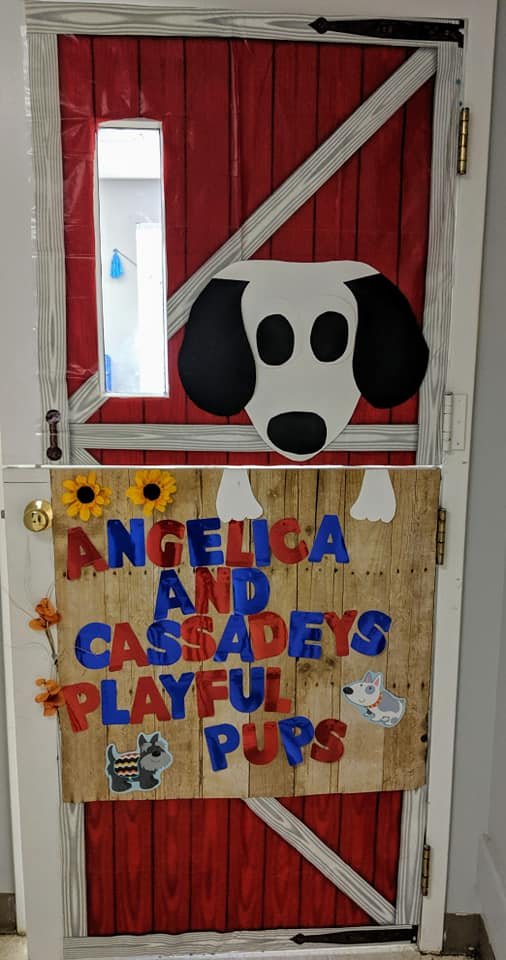Being a parent is probably the scariest thing that I’ve ever done. You are responsible for a whole entire being—or beings!
It’s magical, rewarding, and beautiful while ironically also being terrifying, exhausting, and messy.
Choosing a daycare for your little one is one more decision you make that can be so stressful. I have a unique perspective on the subject matter as I was a daycare teacher for four years before getting pregnant. I worked at the daycare all through my high-risk pregnancy and until he was about 5 months old.
Due to health issues and Covid, I quit to stay home with our little man.
The daycare was amazing to work with. But after having my son, I felt uncomfortable leaving him with certain teachers that I knew and had a working relationship with for four years!
It was a difficult choice to keep him home, but it was the right decision for our family. Not everyone can survive in these times with only one working parent, however. So, what should you look for in choosing a daycare/preschool for your precious little one?

License and Accreditations
First, ask the tough questions. Are they licensed? Are they accredited with reputable organizations like the National Association for the Education of Young Children?
Understanding that church-based facilities have different standards than secular ones is something to keep in mind as well. They typically don’t require a license to operate, but still have to follow basic safety and hygiene guidelines. You want a clear view on what standards they are held to.
Ask if the teachers are very clear on what to do in various safety situations. When I first started working with my daycare, I was the afternoon teacher for 12-month-olds. The morning teacher would fill the evacuation crib with so much clutter. One afternoon our fire alarm went off and I had nowhere to place my six little kiddos. The teacher next door helped me get them into hers so we could get out of the building in a timely manner.
It was a false alarm. But had it been a real fire, something bad could have been the result of someone else’s recklessness. I had a firm talk with my directors over this.
When most parents leave their child with someone, they assume that safety is a clear-cut understanding. Our parents entered the room daily to drop off/pick up and noticed the clutter but never questioned it.
Inspect the rooms, ask those questions and be that parent who is overly concerned about every aspect of their child’s environment. It never bothered me to have a parent question our policies or ask for clarification over guidelines.
Safety & Cleanliness
This leads to the next concern: is the environment clean and safe? Can you see childproofing methods in place? Are entrances secure from outsiders? Are the staff CPR- trained and have first aide procedure in place? How are illnesses handled? Are there emergency exits and plans openly available?
Upon occasion someone not on the pickup list tries to pick up a child because mom is unable to make it. When they are turned away, the parent will call and complain. The number of familial abductions and noncustodial parents trying to approach their children has risen over recent years. You want a facility who will strictly adhere to the pickup list. Inconvenient? Yes, but your child’s safety is the main objective.
Turnover (and not the apple kind)
The staff is the biggest gamble when choosing a daycare. The person who will spend 6-8 to hours with your child every day will make a huge impact on your child’s behavior and development in those early formative years.
I can say that most daycare teachers genuinely care and love their kiddos. However, remember that most daycare workers make minimum wage (sometimes less). There are typically three categories of teachers: young women in college who need work to fund school, women who felt led to teach, or women who have grown kids and miss interacting with littles day to day.
Then there is a subset of individuals that fall into it because of financial issues and/or cannot get hired in better paying jobs. These women are few but are out there. And you should be wary of them.
I knew workers who fell asleep on the job. Or stayed on their phone the entire day. Or was cheerful during drop off/pick up and the rest of the day did not teach or interact with the kids at all.
If over a long period of time your child still has not warmed up to their teacher, maybe ask the director to peek in on them during the day. Most likely it’s a normal adjustment period, but my advice is to err on the side of caution. Look into the turnover rate for each facility. If it’s high, the issue most likely lies with the administration. And remember to never judge a book by it’s cover: perky teachers aren’t always just enthusiastic about their job, sometimes it’s their way of masking their lack of effort and work ethic.
Child-to-Staff Ratio
Lower ratios allow for more individualized care and attention. Large classes with fewer staff lend to incident reports, teacher burnout, and children with less engaging interactions between child and teacher. Ratios should look something like this:
| Age | Staff to Child Ratio |
| 6 weeks- 12 months | 1 to 5; or 2 to 12 in the same room |
| 12 months- 18 months | 1 to 6 |
| 18 months- 30 months | 1 to 7 |
| 30 months- 36 months | 1 to 8 |
| 3 years | 1 to 12 |
| 4-5 years | 1 to 14 |
Curriculum
You want a daycare that offers age-appropriate activities and curriculum. This means that there is a healthy balance of structured learning and free play. Your child should have work sent home from time to time.
I did crafts with my kids as early as 12 months. These were simple activities like coloring, using paint dabbers, or finger paintings by placing computer paper in a zip lock bag, squirting some paint inside and zipping it closed so the kiddos can press and squeeze the bag. Sensory play is huge for that age, so never let them tell you they are not old enough to do a number of activities. This may show a lack of child development knowledge, and that comes from poor training.
As for 2-year-olds, they should be doing a “lesson” every day and a craft a few times a week. You want a facility that promotes well-rounded development.
There is some wiggle room from teacher to teacher and how their curriculum works. Some daycares provide lesson plans for every single class, but a lot of them give the teacher a broad idea of what they want accomplished. When I became the full-time teacher for 2-year-olds, the previous teacher had zero material for me. She’d been fired due to not teaching.
My directors gave me a vague idea of what they wanted me to cover in the class, but I built the curriculum from scratch and this included their letters, numbers, colors, shapes, Bible stories (it was a church CDC), crafts based off of those things. We also sang, danced, learned basic sign language, communication skill-building, and playground/soft play times. We worked on potty training, manners, and table etiquette.
Don’t be afraid to ask for a copy of the curriculum or at the very least a verbal summary.
Meal Plans
Nutritional meal plans are a huge factor. You want healthy food options, or the option to send your child’s breakfast, lunch, and snacks. You should also be sure the facility accommodates for allergies or dietary restrictions.
Ask if the teachers know how to administer an epi-pen and whether everyone are aware of special instructions to your child’s needs in the event that a substitute teacher or lunch worker is involved.
Communication Between Teacher and Parent
Communication is key, as it often is in life. Is your teacher communicating openly about your child’s development and behaviors?
If your daycare doesn’t provide regular updates on your child’s progress or are not receptive to your questions or concerns, speak with the director.
It’s okay to be that parent. Pinky swear.
Reviews and References
Lean on reviews and references heavily! Word of mouth is a powerful tool. Some negative experiences may be something to take with a grain of salt, but great reviews from experience tends to be infallible.
Parents talk.
Some reviews may be skewed or biased. However, a lot of what you might hear is invaluable.
Observational Visits
I would never join a daycare that doesn’t offer an observation/walk-through visit. You will want to see the staff-child interactions for yourself. The overall atmosphere throughout the facility matters.
This is a time for you to get your questions answered and for you to get a feel for the place. Always follow your gut and trust your instincts!
Choosing a daycare can be daunting, but if you follow these tips, the stress can be cut in half. There are some truly wonderful childcare facilities out there; you just have to do your homework first.
You are obviously a parent who cares because you’re reading this article. You would be surprised the number of parents I have encountered over the years who just didn’t care. Best of luck!

